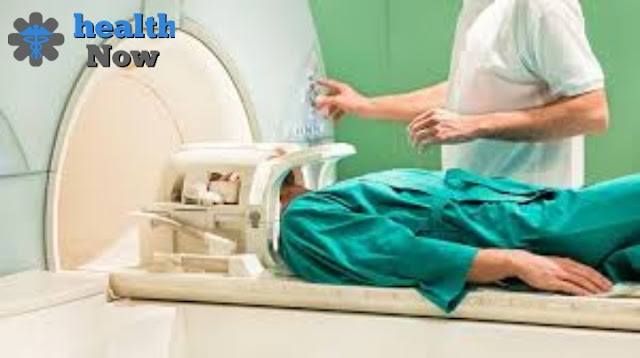brief about schizophrenia and 10
It is a serious, constant mental problem that influences how an individual thinks, feels, and acts. Although schizophrenia ICD 10 is not as common as other mental disorders, the symptoms can be very damaging.
- It affects men and women more or less equally; however, it may appear earlier in males.
- The exact cause of schizophrenia ICD 10 is unknown, But the condition is thought to be caused by a combination of genetic and environmental factors.
- The earlier ICD 10 schizophrenia is treated, the better.
Definition of schizophrenia ICD 10
It is a serious, constant mental problem that influences how an individual thinks, feels, and acts. Individuals with it might hear voices that are not there, or they might feel that others are attempting to hurt them.
Specialists frequently depict it as a type of psychosis, implying that an individual may not generally have the option to recognize their contemplations from those that are happening.
Cause of schizophrenia ICD 10
The exact cause of schizophrenia ICD 10 is unknown, But most experts believe that the condition is caused by a combination of genetic and environmental factors. Certain circumstances (eg, unpleasant life-altering situations, abuse of meds) can likewise set off this condition.
Research has shown that schizophrenia ICD 10 affects men and women fairly equally. However, it may appear earlier in males.
Symptoms causing schizophrenia ICD 10
Positive symptoms: any change in behavior or thoughts (eg: hallucinations, delusions).
Pessimistic side effects: People appear to be pulling out from their general surroundings at that point, not focusing on day-to-day friendly associations, and frequently seeming essentially deadpan.
Positive symptoms:
- fantasies: where he sees, hears scents, tastes, or feels things that are not external to his psyche; Where it is the most widely recognized to hear voices. The visualizations are additionally genuine to the individual encountering them, even though individuals around them can't hear the sounds or experience the sensations.
- Hallucinations: a conviction that the patient accepts with complete conviction, regardless of whether it depends on a misleading, peculiar, or unreasonable view, (for example, being harassed or mistreated), that might influence how dual acts and daydreams can begin unexpectedly or may foster throughout weeks or months.
- Disorganized thoughts (thought disturbance): Difficulty concentrating and moving from one thought to another.
- Changes in conduct and considerations: An individual's way of behaving may end up being more confounded and capricious, and certain individuals depict their contemplations as being constrained by another person, that their contemplations are not their contemplations, or that their contemplations have been embedded in their brains by another person.
Negative symptoms:
- Often, negative symptoms of schizophrenia ICD 10 can appear several years before a person experiences their first acute episode of schizophrenia:
- The individual turns out to be socially removed and progressively unengaged in their appearance and individual cleanliness.
- Loss of interest and inspiration throughout everyday life and exercises.
- Absence of focus, reluctance to take off from the house, and c,hanges in rest designs.
- Feeling uncomfortable with people or feeling like there is nothing to be said.
- The negative symptoms of schizophrenia ICD 10 can often lead to relationship problems with friends and family.
Complications of schizophrenia icd 10.
Whenever left untreated, it can prompt difficult issues that influence each everyday issue:
- Inability to work independently.
- Abuse of alcohol or other drugs.
- Medication side effects: tardive dyskinesia.
- Suicide, suicide attempts, thoughts about suicide.
- violent behavior.
Diagnosis of schizophrenia ICD 10.
There is no single schizophrenia ICD 10 test, and the condition is usually diagnosed after evaluation by a mental health professional. Where side effects are asked and checked that they are not because of different causes (eg chronic drug use).
- The patient had at least one of the accompanying side effects more often than not so much for a month.
- dreams, pipedreams, hearing voices, ambiguous discourse, or past regrettable side effects).
- Symptoms had a significant effect on the ability to work, study, or perform daily tasks.
- Any remaining potential causes, for example, substance misuse or bipolar issue, were avoided.
Treatment of schizophrenia ICD 10.
 |
| Treatment of schizophrenia icd 10 |
There is no cure for schizophrenia, But it can be treated and managed in several ways:
- medicines.
- Psychotherapy (eg: mental social treatment, emphatic local area treatment, strong treatment).
- Self-management and education strategies.
Keyword :paranoid schizophrenia icd 10, schizoaffective schizophrenia icd 10
, history of schizophrenia icd 10,
bipolar schizophrenia icd 10,diagnostic criteria for schizophrenia icd-10, simple schizophrenia icd 10, undifferentiated schizophrenia icd 10, borderline schizophrenia icd 10, hebephrenic schizophrenia icd-10, schizophrenia icd 10 code, icd 10 acute schizophrenia like psychotic disorder, differences between dsm-5 and icd-10 schizophrenia.
Frequently asked questions about schizophrenia ICD 10.
Schizophrenia is rarely serious, and any violent behavior is usually caused by drugs or alcohol, and there is rarely violent behavior compared to the effects of alcohol and drugs in our society. Individuals with schizophrenia are additionally bound to be hurt by individuals than to be hurt by anybody.
No, a great many people with schizophrenia live with their families, in bunch homes, or all alone.
Misconceptions about schizophrenia ICD 10
Fact: Schizophrenia 10 does not mean split personality or multiple personalities; But it is a brain disorder that causes some symptoms (such as delusions, hallucinations, disorganized speech, and difficulty thinking).


